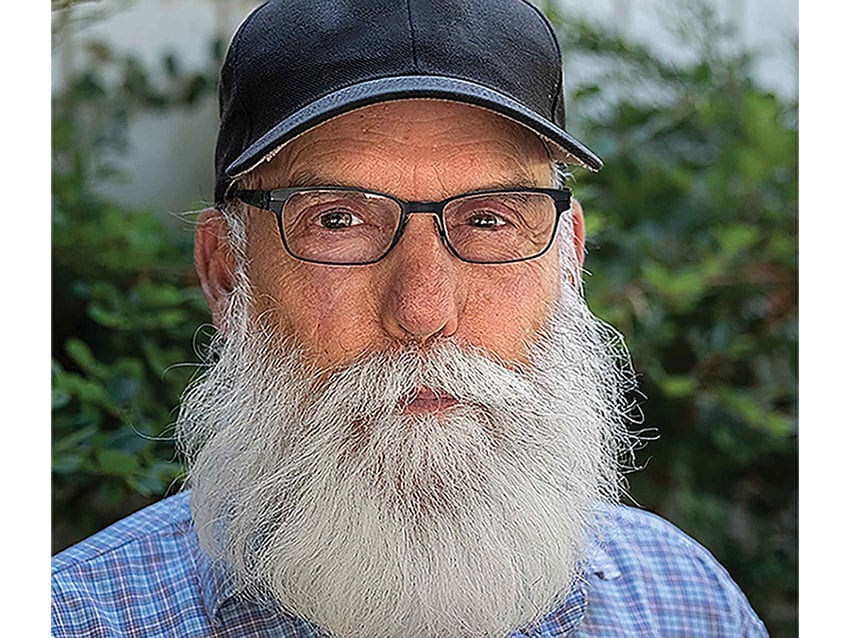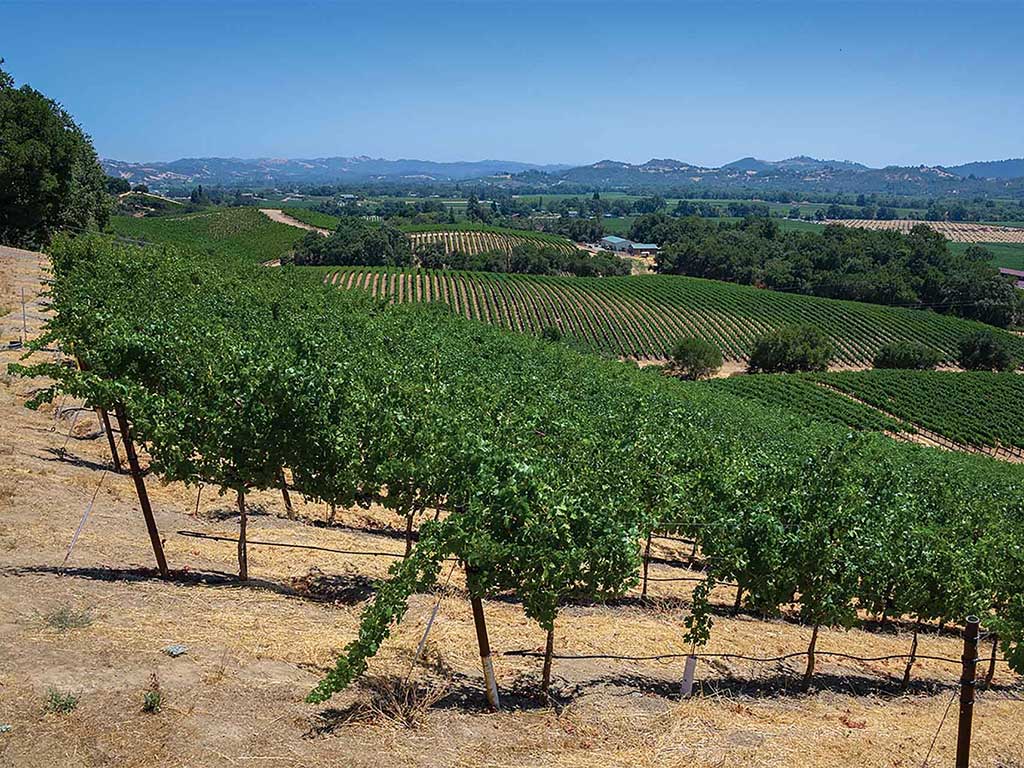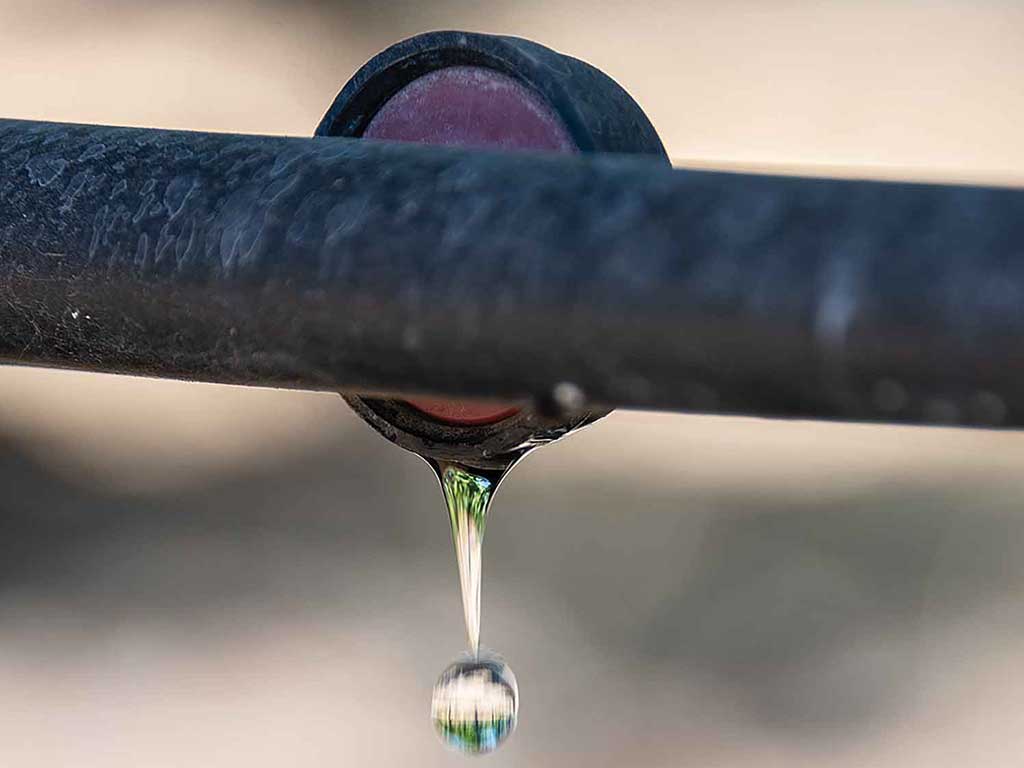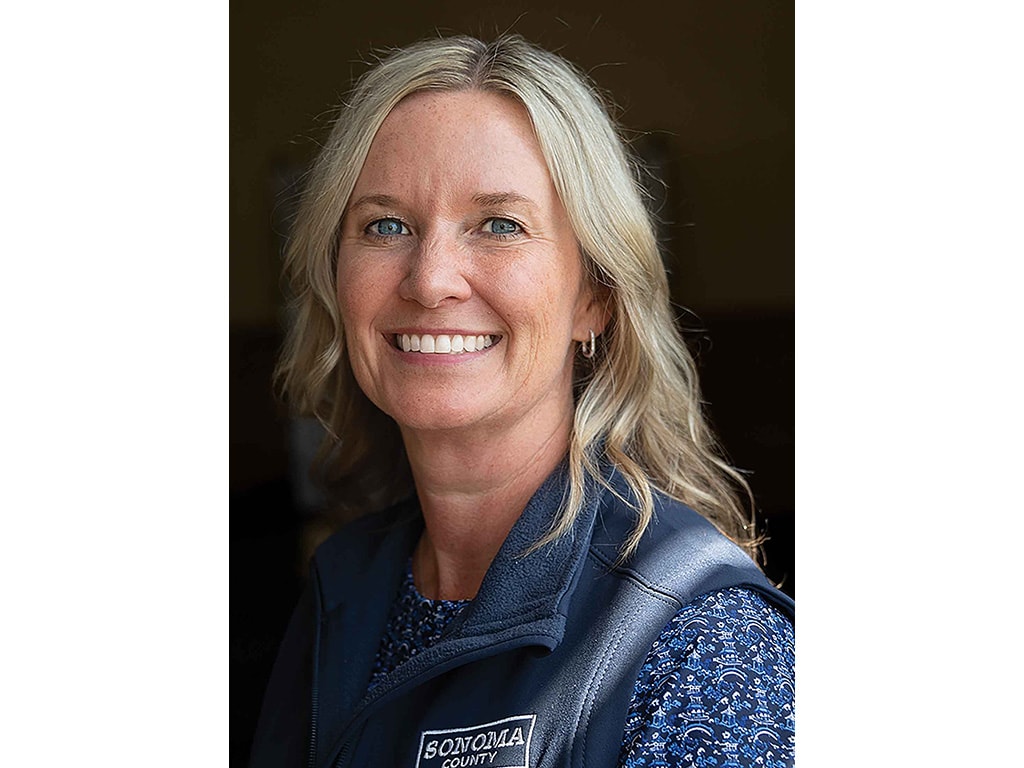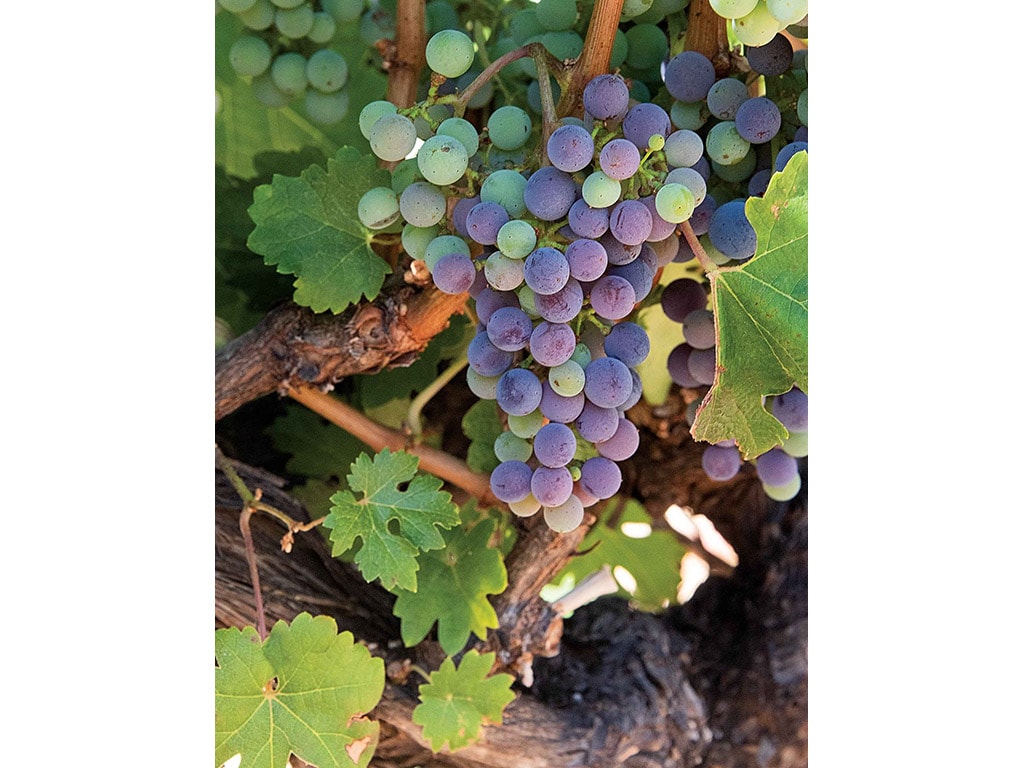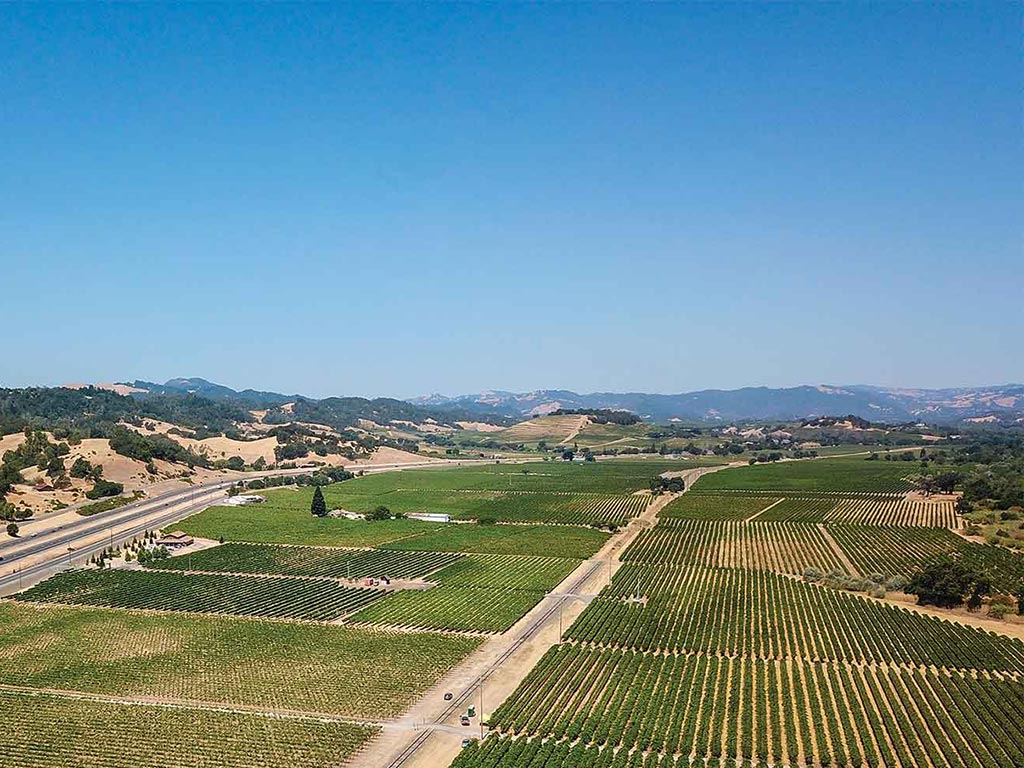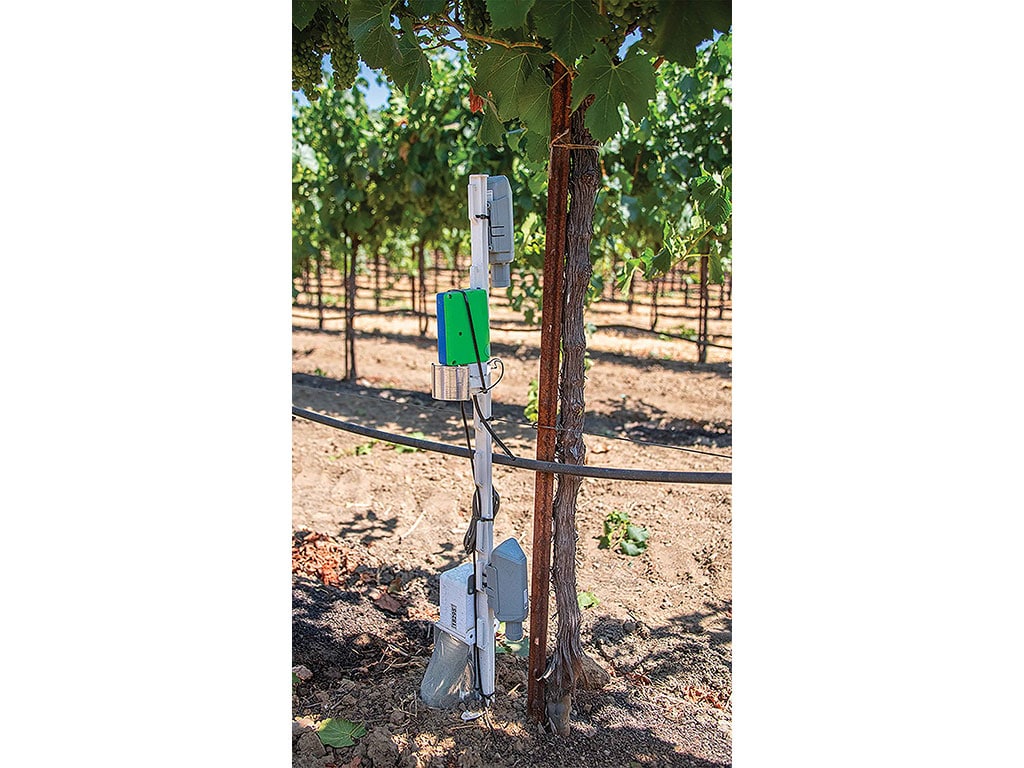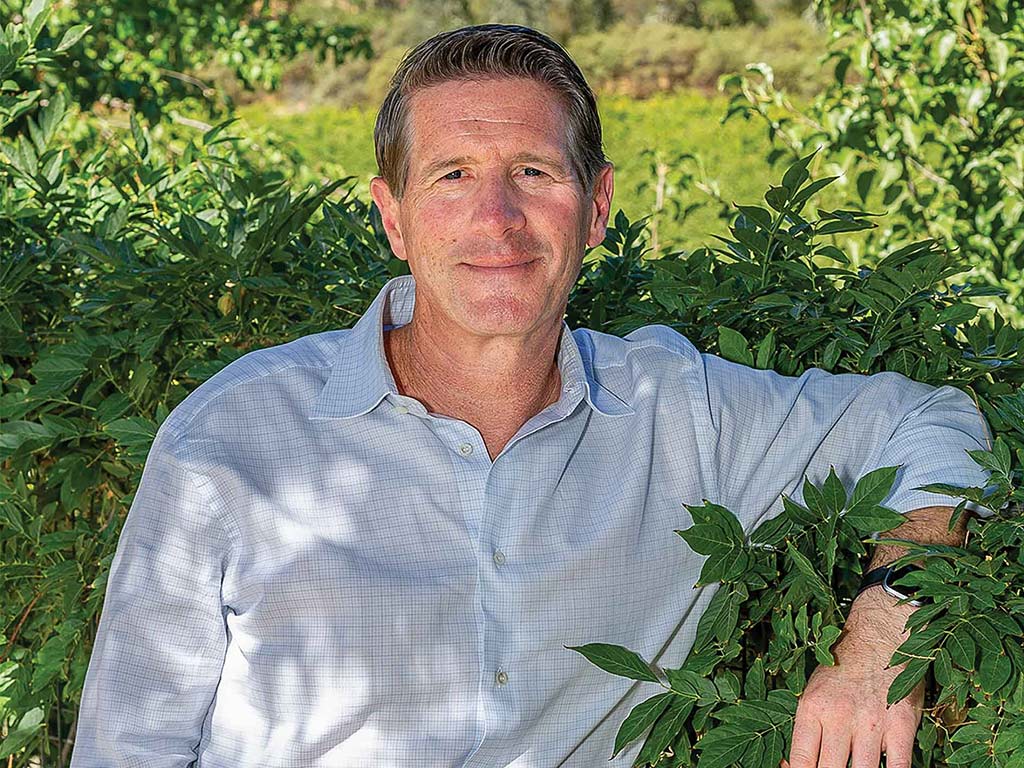Agriculture, Sustainability June 01, 2025
Staking Out the Sustainability Space
Sonoma winegrape growers double down on sustainability.
by Steve Werblow
"We are good stewards of the land, and we want to be able to tell that story," says grower and winery owner Bret Munselle of Geyserville, California, chair of Sonoma County Winegrowers (SCW)." And Sonoma County really put a stake in the ground and has thrived from that stake being in the ground."
The Munselle family's 400 acres, the vineyards he custom farms for clients, and 99% of Sonoma County's 60,000 acres of winegrapes are certified under 1 of 4 sustainability programs. Ninety-nine percent.
It's a story many wine lovers are eager to hear. It has also created outstanding opportunities for Sonoma growers to partner with suppliers and promotional partners eager to connect with cohesive farm groups with an eye for sustainability.
The sustainability initiative —driven by SCW—also sets the stage for a long, productive future for growers, notes viticulturist and consultant Tyler Klick of Redwood Empire Vineyard Management in Geyserville.
"We have to make a way to differentiate ourselves—why not in the way we operate, the way we farm, the way we grow our winegrapes?" Klick asks. "We make sure we're being responsible for ourselves, for our long-term efforts, but also for the consumer so that they have some sense of satisfaction when they're purchasing their wine from a sustainable region."
The idea started in 2013 with Duff Bevill, a long-time Sonoma County winegrape grower who was chair of SCW. He wondered if the association could shine a light on Sonoma wine by gunning for a governor's environmental award. Bevill and SCW president/CEO Karissa Kruse called the association's board to a retreat to explore a sustainability commitment.
"We had to tell the growers, 'I'm not coming in to tell you how to farm,'" recalls Kruse. "'The sustainability program is coming in to help you learn to do more with less resources, learn how to do better, learn a softer touch, learn how you save money, learn how you train your workforce better. It's not a prescription, it's a conversation and a set of best practices.'"
Above. Duff Bevill inspired Sonoma County Winegrowers to define itself through sustainability. The view is bright at Munselle Vineyards. Water conservation is key to sustainability. Karissa Kruse steered the sustainability campaign.
Commitment. "By the end of the day, we were all agreeing that 'this was a great goal—let's move forward,'" says Bevill. "So we all signed a letter that we are in 100% agreement that it would be the goal of the organization to get 100% of the acres. Every one of us on the board—there's 21 of us—became accountable for selling this idea."
The board gave itself 5 years to get all the county's winegrape acres on board. It was 5 years of coaching, educating, door-to-door campaigning, and a little bit of arm-twisting at the end.
Growers could choose a program that best fit their operations and interests. All options covered water, crop protection, environment, community, business, and labor practices.
"Our whole thing was about credibility—to have a robust program and third-party certification behind it," Kruse says.
Supporting growers was key.
"We hired a sustainability manager who would literally go out and sit in somebody's kitchen with them and walk them through the assessment because it can be daunting without someone holding your hand," Kruse points out.
Two big grape buyers—Delicato Family Wines and Jackson Family Wines—boosted the effort by paying premiums for growers selling certified grapes.
"The timing was perfect," says Corey Beck, chief winemaker for Delicato. "I think we as an industry were getting to the point where a lot of the farmers were doing this anyway. So now it was, 'OK, let's get it certified. Let's start letting our consumers know what that means.'"
SCW worked with the Alcohol and Tax Trade Bureau to create a sustainability symbol wineries could display on their labels. Farmers proudly hung Sonoma County Sustainable signs along the road. SCW also brainstormed on what Sonoma County's future could look like.
Above. Sustainability enhances the market appeal of Sonoma County winegrapes. Sonoma County is home to 60,000 acres of winegrapes. Sonoma County winegrape growers' sustainability commitment attracted research opportunities like this soil respiration study. Corey Beck, chief winemaker for Delicato Family Wines.
Resonated. Sonoma's growers proved their commitment to sustainability and continual improvement. That resonated strongly with tech companies as well as buyers.
"We started to call ourselves a living lab," says Kruse. "That's been a term that we really want to own as part of our thinking about who we are and how we farm in the future."
Three of the first Ford electric pickups to roll off the assembly line went to Sonoma County for a study of electric vehicles on farms. John Deere and Wilbur Ellis engaged with SCW on pilot projects. Kruse also inked partnerships teaming SCW up with the Houston Rockets and San Francisco Giants.
Despite a global wine glut and low grape prices, the future looks bright—and sustainable—for Sonoma County winegrapes.
"As soon as we hit 99%, the board asked, 'how do we maintain leadership—and what's next?'" says Kruse. ‡
Read More

AGRICULTURE, AG TECH
Tech@Work
Harvesting success: The power of teamwork and technology

AGRICULTURE, EDUCATION
Summer School in the Barnyard
Vermont dairy transforms chores into summer camp traditions and community bond.


